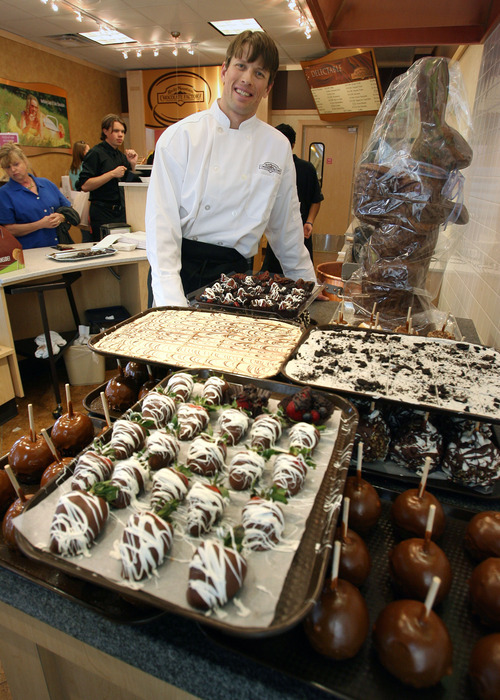This is an archived article that was published on sltrib.com in 2012, and information in the article may be outdated. It is provided only for personal research purposes and may not be reprinted.
The confidence of Utah consumers slipped moderately in March as fuel prices continued to climb, but it still remained high enough to suggest that optimism about the state's recovery from the recession remains on track.
The Zions Bank Consumer Attitude Index fell 4.9 points, to 79.9, which is down from 84.8 in February because Utah gasoline prices have spiked 23 percent in three months, the bank said Tuesday.
The decline brought the monthly barometer of consumer sentiment back to just above January's reading of 79.8, a level consistent with growth but still below the 90 that indicates a fully healthy economy.
"The increased cost of gasoline has a disproportionate impact on consumer confidence. The reason is because we see the prices broadcast at every gas station we drive by, and because Americans are so reliant on their individual cars," said Randy Shumway, CEO of The Cicero Group/Dan Jones and Associates, which prepares the index for Zions.
Even though gas prices are escalating, Utahns haven't lost faith in the state's "uneasy and slow" economic recovery, Shumway said.
"The more important economic indicators are improving, and they outweigh the negative effect of gas prices. The economy is improving. The stock market is rising. Home sales are up. Median income is up. The list goes on and on. I think there are many more reasons for what I would characterize as cautious optimism," he said.
Cicero surveyed 500 people for the Zions survey during the two weeks ending March 15. The margin of error was plus or minus 4 percentage points.
Nationally, the Conference Board's Consumer Confidence Index fell 1.4 points, to 70.2, from a revised 71.6 in February, which was the highest level since the same month in 2011. As in Utah, a reading of 90 corresponds to a U.S. economy in good shape.
Consumer confidence has made a recovery since it fell to an all-time low of 25.3 in February 2009. But the March reading suggests consumers are still wary. The index hasn't been near 90 since December 2007, when the recession began.
Economists watch consumer confidence closely because Americans' spending, on items from clothing to health care, accounts for about 70 percent of the nation's economic activity.
One measure of the Zions index, which measures how shoppers feel about the economy today, decreased to 54.9 from 61.2 in the previous month. The other barometer, which assesses their six-month outlook, fell to 96.6 from 100.5 in February.
The declines aren't evident at the Rocky Mountain Chocolate Factory store, which opened a location last week at the new City Creek Center, owner Dan Ray said.
"We've just been so busy since we opened," he said, adding that sales "are blowing away our projections."
Ray's 800-square-foot shop is between Nordstrom and Deseret Book and directly across the street from the south entrance to Temple Square in downtown Salt Lake City. Business has been so brisk at the mall that the store's two cash registers can't serve customers fast enough. To relieve the bottleneck, Ray bought several iPads last weekend. As a result, the store's 12 employees can ring up purchases anywhere in the store. And because Ray intends to hire six more employees, he plans to buy more iPads.
"This [store] is a crazy gamble. I can't tell you how scared I am, but we're feeling better every day about it," Ray said.
Nationally, the part of the Consumer Confidence Index that gauges current sentiment rose to 51.0 from 46.4 in February. The longer-range component declined to 83.0 from 88.4 in the previous month.
Twitter: @sltrib.com





